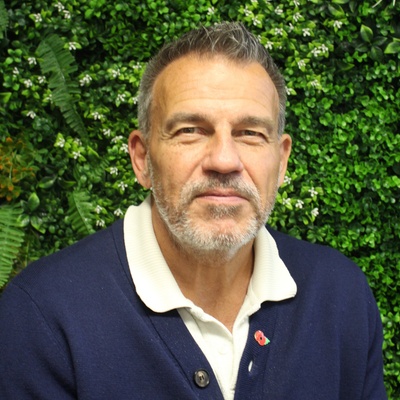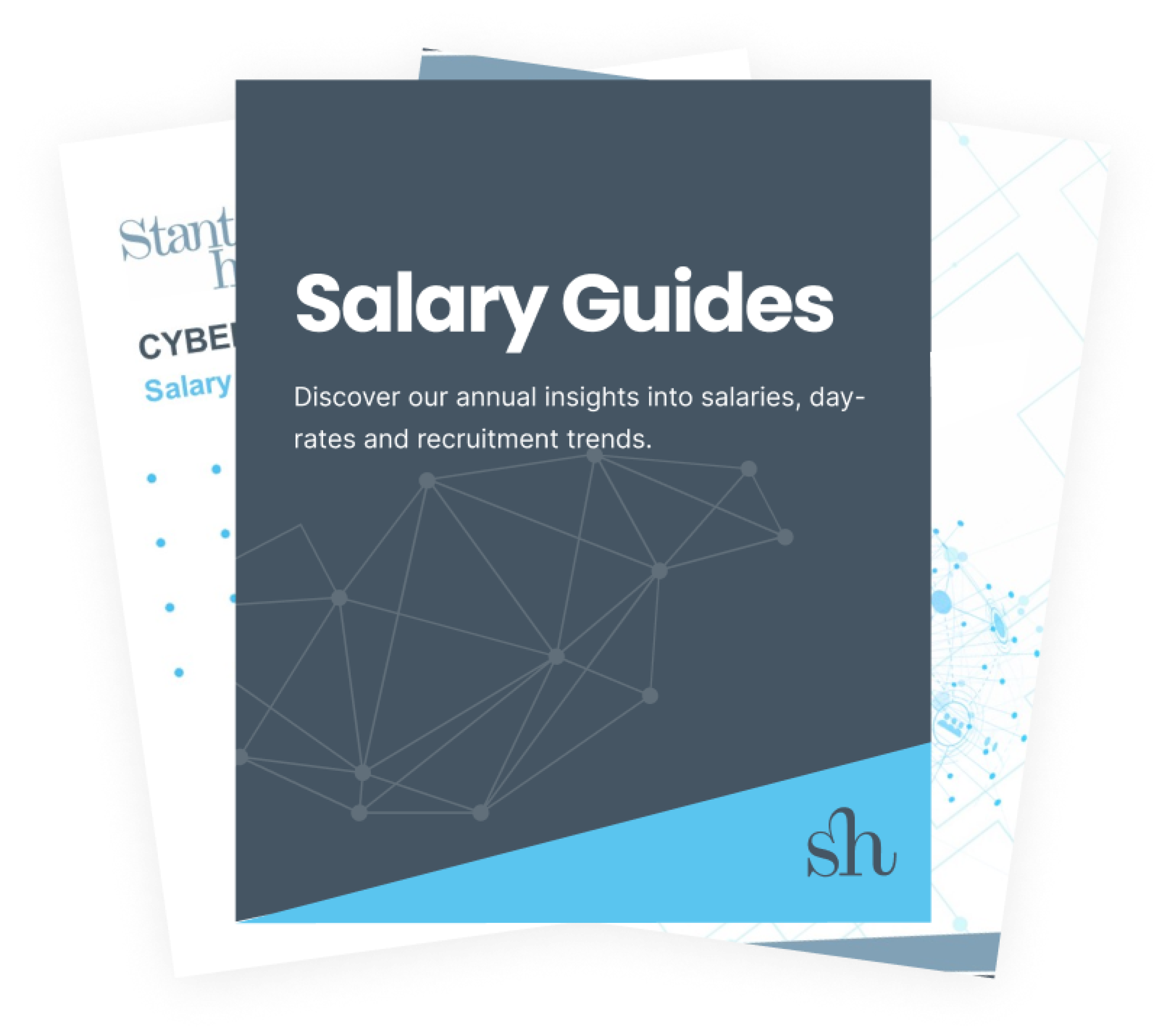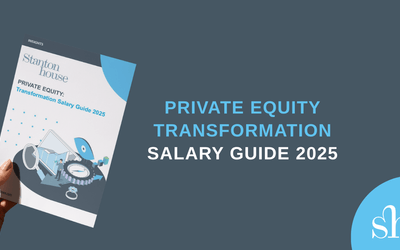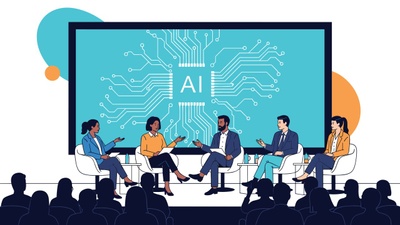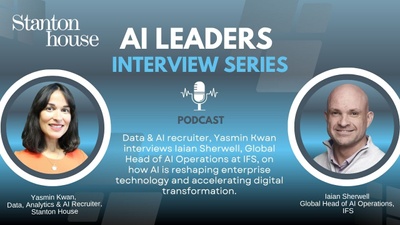
Talent in Transition: Thriving in the Age of AI
Last month, Anthropic CEO Dario Amodei issued a stark warning: Artificial intelligence could displace up to 50% of entry-level white-collar jobs within the next one to five years. Headlines called it a white-collar bloodbath.
But it is important to put this in context. The disruption Amodei references is largely concentrated in large-scale, entry-level and mid-tier white-collar jobs, roles that were once considered ‘safe’. Senior, strategic and specialist roles are not immune, but right now, we see AI reshaping these roles, not replacing them.
At Stanton House, across our core areas of Accountancy & Finance, Change & Transformation, Data, Analytics & AI, Private Equity, Cybersecurity, we are seeing a fundamental shift. For seasoned experts, AI is not an existential threat; it is an augmentation opportunity.
Our Outspoken newsletter has always stood for progressive, inclusive conversations about work. The AI revolution is no different. Inclusion will be key to resilience and innovation as the landscape continues to evolve.
The AI Wake-Up Call: Disruption & Opportunity
Dario Amodei’s warning is sobering, but it needs context. It is true that highly automatable, repetitive white-collar jobs, such as data entry, document review, and junior finance analyst roles, are under significant pressure.
According to the World Economic Forum’s Future of Jobs 2024 report, AI could displace 83 million jobs globally. However, it is also expected to create 69 million new roles, largely in technology, data, and leadership functions.
McKinsey research shows that up to 60–70% of employee time spent on data processing and collection is automatable today. However, the reality for senior and specialist professionals is more nuanced.
For senior professionals, AI is not replacing expertise, strategic judgement, or leadership. Currently, it is a shift towards augmentation, with technology as a co-pilot rather than a replacement. Here is how AI is reshaping leadership roles across the disciplines we recruit for:
Accountancy & Finance: Senior finance leaders are no longer just guardians of financial reporting. As AI automates compliance, audit, and basic forecasting tasks, CFOs are increasingly expected to leverage AI insights to drive business strategy, scenario planning, and value creation. Adaptability to AI-enhanced ERP systems and a focus on strategic leadership have become defining skills for modern finance heads.
Change & Transformation: AI is accelerating digital transformation initiatives, automating routine project management and data collation tasks. However, the success of transformation programmes hinges on human leadership - change professionals must steer cultural shifts, manage complex stakeholder environments, and ensure AI is deployed ethically and inclusively. Strategic thinking and emotional intelligence are paramount in this evolving landscape.
Data, Analytics & AI: As AI becomes more embedded across industries, demand is surging for data leaders who can not only drive AI initiatives but also ensure governance, fairness, and ethical AI practices. Roles like Chief Data Officers and Data Governance Leads are tasked with building data strategies that balance innovation with compliance and risk management, making the human oversight of AI deployments mission-critical.
Cybersecurity: AI enhances cyber threat detection and response times, but it also introduces new vulnerabilities. Senior cybersecurity leaders must develop hybrid strategies that integrate AI-powered defences with human-led critical thinking and judgement. With the regulatory environment becoming stricter, human oversight in ensuring resilience and compliance is indispensable
Senior leaders we work with highlight how they are adapting to the AI shift:
“The CFO role is evolving fast. AI gives us sharper forecasting and scenario planning, but strategic decision-making, understanding the broader business context, is something only humans can do. AI is powerful, but it needs our judgment to turn insight into action.”
CFO
“We’re using AI to accelerate transformation initiatives, but real change happens through people. Our most successful projects are those where diverse teams collaborate closely with AI tools - human creativity and tech efficiency combined.”
Change & Transformation Director
“In cybersecurity, AI is transforming threat detection, but human intuition and cross-functional collaboration are irreplaceable. Diverse teams, with different experiences and thinking styles, spot risks faster and design stronger defences.”
Chief Information Security Officer
However, one development to watch closely is the rise of agentive AI. These are AI systems designed not merely to assist with tasks but to act independently, making decisions and taking actions without human prompting.
Think of AI that manages financial workflows, optimises supply chains, or autonomously analyses cyber threats. Agentive AI promises huge efficiency gains but brings significant implications for responsibility, ethics, and job design, particularly at the senior level.
Skills for the AI-Driven Economy
As AI reshapes the work landscape, what we value in skills is changing rapidly. Routine, predictable tasks are increasingly vulnerable, but human-centric capabilities are rising in importance.
According to LinkedIn’s Work Change Report 2025, 70% of the skills used in jobs today are expected to change by 2030, with AI acting as a major catalyst. Professionals entering the workforce now are also projected to hold twice as many jobs over their careers compared to 15 years ago, highlighting the pace of change.
The World Economic Forum identifies critical future skills for the AI era: analytical thinking, creativity, leadership, and emotional intelligence. These are capabilities that AI cannot easily replicate.
Equally important is AI literacy, not in the sense of becoming a technologist but in understanding what AI can and cannot do, how it augments your role, and how to work alongside it effectively. Encouragingly, since 2022, there has been a 140% increase in the pace at which professionals are adding new skills to their LinkedIn profiles, including AI literacy.
Adaptability is emerging as a skill in itself. Senior professionals who are willing to learn, experiment, and integrate new technologies into their work will have the edge. Yet, according to LinkedIn’s research finding candidates who combine technical proficiency with strong human skills remains a top challenge for organisations.
Inclusion as a Strategy for the Future
The link between diversity, inclusion, innovation, and profitability is well established. However, as AI reshapes work, D&I takes on even greater significance - not just as a marker of high-performing organisations, but as a necessity for building ethical, resilient, future-ready workforces.
AI systems learn from human data. Without diverse teams designing, training, and governing these systems, there is a real risk that AI will replicate and even amplify historical biases. Organisations that neglect diversity at this stage risk embedding inequality into their technologies, damaging both their brand and their bottom line.
Moreover, the shift towards skills-first hiring - prioritising capabilities over credentials - is not just a hiring trend, but an inclusion strategy in itself. By focusing on skills, businesses can access broader, more diverse talent pools, bring in professionals from non-traditional backgrounds, and create workforces that are more adaptable and representative.
In the AI era, inclusion is not a ‘nice-to-have’. It is essential to create responsible, high-performing teams that can collaborate effectively with technology. Companies that invest in inclusive, AI-augmented cultures will not only innovate faster but will also build the resilience needed to thrive through future disruptions.
As AI transforms work, the case for D&I is not just ethical or commercial - it is existential.
“AI is changing the game, but people are still at the centre. The firms that succeed will be those who blend technology with diverse, human leadership; that’s where innovation really happens.” Esther Boffey, Diversity & Inclusion Leader, Stanton House
Practical Advice for Senior Professionals
1. Develop Practical AI Literacy
Senior professionals do not need to become technologists, but they must understand how AI is transforming their industry. Focus on building fluency in the applications of AI relevant to your field, such as predictive analytics in finance, AI-enhanced ERP systems in transformation programmes, or AI-driven risk models in cybersecurity.
Practical steps include participating in executive education programmes, such as MIT Sloan’s Artificial Intelligence: Implications for Business Strategy or Oxford’s AI Programme for Business Leaders. Sector-specific AI courses, including LinkedIn Learning’s AI for Business Professionals or Coursera’s AI for Everyone, offer accessible starting points. Engaging directly with AI platforms - experimenting with tools like ChatGPT, Tableau, or Microsoft Copilot - helps bridge the gap between theoretical knowledge and day-to-day practice.
Building this practical literacy will be critical for leading AI-augmented teams and making strategic, informed decisions in an increasingly technology-driven environment.
2. Deepen Distinctly Human Capabilities
While AI excels at processing data and automating routine tasks, it cannot replicate the distinctly human skills that senior professionals bring to the table. Emotional intelligence, strategic leadership, complex problem-solving, and nuanced judgment will become even more valuable.
Invest in sharpening these capabilities. Reflect on how you manage ambiguity, lead through change, and cultivate trust. The most successful senior leaders will not only leverage AI as a tool but will also create environments where teams thrive alongside technology.
3. Build Career Resilience through Inclusive Leadership
In a world reshaped by AI, diverse perspectives are critical to solving complex, high-stakes challenges. Leaders who prioritise inclusion and listen to and integrate different viewpoints will foster more innovative, resilient teams.
Inclusive leadership is no longer a cultural aspiration; it is a commercial imperative. Clients and organisations increasingly seek candidates who combine technical expertise with emotional intelligence and a proven ability to lead diverse teams. As Stanton House’s Salary Guides highlight, adaptability, AI fluency, and inclusive leadership are emerging as must-haves across professions and sectors.
Building your career resilience means evolving not just your skills but your leadership mindset - one that embraces diversity, collaboration, and lifelong learning.
Leading the Future: Inclusion, AI & Human Leadership
AI will reshape industries, redefine roles, and recalibrate what it means to be work-ready. But it will not eliminate the need for human leadership, creativity, and empathy.
Organisations that invest in inclusive, AI-augmented cultures will be best positioned to innovate faster, adapt more effectively, and retain high-performing talent. Diversity of thought and experience will be critical to ensuring that AI is deployed ethically and responsibly, helping businesses unlock true competitive advantage.
For senior professionals, this is not a time for complacency. It is a call to adapt, evolve, and lead differently - to deepen AI literacy, strengthen distinctly human capabilities, and embrace inclusive leadership as a commercial imperative.
Sources:
Behind the Curtain: A white-collar bloodbath
McKinsey & Company, The economic potential of generative AI: The next productivity frontier
World Economic Forum, Future of Jobs Report
LinkedIn Work Change Report: AI is coming to work
McKinsey & Company, Delivering through Diversity
About Outspoken:
Stanton House is delighted to introduce Outspoken! Our monthly newsletter where we will raise the volume on crucial discussions shaping the landscape of talent acquisition and career advancement. With a firm commitment to diversity and inclusion, we delve into the challenges faced by both employers and candidates, providing practical solutions and thought-provoking commentary. Whether you're a forward-thinking organisation seeking top talent or an ambitious professional navigating your career path, Outspoken is your ally in fostering inclusive excellence.
